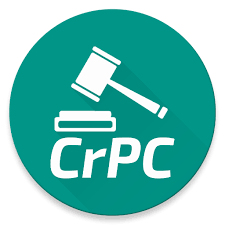Doctrine of Repugnancy
Repugnancy can be defined as the contrary or the disconfirmation
between two or more parts of a statute or a contract which are basically a legal
instrument. Doctrine of repugnancy is basically when two pieces of legislation
have a conflict between them and when are applied to the same facts but they
produce different outcomes or results. When provisions of 2 laws are so contrary
and disconfirmed that it becomes difficult to do one without opposing the other,
this is a situation where repugnancy arises. Article 254 of the Indian
Constitution establishes successfully the Doctrine of Repugnancy in India.
Doctrine of Repugnancy deals with the difference of opinions in terms of law which arises between the Centre and States. Article 254(1) of Indian Constitution states that if any provision of law or the law which is made by the legislature of the State is repellent to any provision made by the Parliament, then the law which is made by the Parliament shall make triumph over the law which is enacted by the State.
Article 254(2) states that any provision of law or the law which is made by the legislature of the State on the matter which is cited in the concurrent list, is repellent to the provision made by the Parliament and it has been kept for the approval of President and if it has got the approval then State law will triumph over the law made by the Parliament. The Parliament any time before the approval of President can amend or invalidate the repugnant law.
Conditions of Repugnancy:
There are some conditions which need to be satisfied before any repugnancy could arise are as follows- there should be clear and direct incompatibility between the Central and the State Act, incompatibility is definitely clashing, the incompatibility has reached to such a stage that the two Acts are in a direct clash with each other and it is difficult or almost impossible to obey one without disobeying the other one.
The Doctrine of Repugnancy is not explicitly mentioned in American as well as Canadian Constitution. It has been adopted from the American Constitution. The framers of the constitution of India in order to avoid the dispute between the Centre and the State introduced this doctrine in the article 254 of the Indian Constitution. The State Legislature and the Parliament have equal compatibility to constitutionalize in the concurrent list.
This is the duty of the court to interpret the validation and avoid disputes. If the matter is different, then no repugnancy of law which is passed by the legislature is required. Then at that moment of time Article 254(2) would not have any implementation. Under the Article 254 of the Constitution, when there is a law which is passed by the legislature of the state and which is conflicting with the law parliament the whole of the law cannot be held invalid, it can be held invalid only till the dimensions of repugnancy.
To get confirmation about the repugnancy, it is important to check the law made by the Parliament is a comprehensive code or not. If it is not, then the law made by the state won't be held void. In order to invalidate a law, which is passed by the state legislature in the court, it is important to prove that both the laws are made on the same significance and both are conflicting with each other. The state law which becomes nullified after the repugnancy until and unless the union law is not revoked, once it gets revoked it becomes effective.
There is no uncertainty that both state as well as the union the total power but some matters occur many a times where there is a difference of opinion between both the governments. In this situation, Doctrine of Repugnancy becomes a critical technique to deal with these types of inconsistencies. As we all know Centre is dominant over the State in India, this doctrine is not astonishing under Article 254(1) of the Indian Constitution, it mentions that any law which is conflicting to the law that is passed by the Parliament would be held nullified.
If the state gets approval from the President, the Parliament still has the power of making the law void by proving, amending and abrogating law in the same subject matter. There is no importance whether law made by the Parliament has been passed before or after the passing of law made by the State.
The three essentials that are direct conflict, occupied field and intended occupation, if they are satisfied, then the repugnancy arises, then the Parliament law shall triumph over the State law. Doctrine of Repugnancy has a major role in order to maintain the integrity of the country and to keep away two laws on the same subject matter.
Constitution of India has various doctrines but the Doctrine of Repugnancy is one of the most consequential. It helps to maintain uniformity in our country and prevents conflicts between the Centre and State. As we all know, that India is a Quasi federal country and there is a system of distribution of powers between the Centre and the State, so there are chances that disagreement may arise between the Centre and the State and then there is this doctrine which becomes critical.
Whenever, any law which is passed by the Parliament conflicting with law passed in the state legislature, then the parliament law shall prevail. There are many cases in the Article 254(2) that are considered as an exception to the Article 254(1) where it is mentioned that law passed by the State legislature can prevail with the help of Presidential assent.
Article 254(2) of the Indian Constitution has a provision added which claims that Parliament can uphold and amend the same law to make state law incompatible. The law remains inconsistent until and unless the law passed the parliament isn't repelled once it's law gone by the legislature of state comes into existence. In this doctrine Legislative object plays a major rule. Therefore, this doctrine plays a relevant role in the Indian Constitution in deciding the roles of Centre and State.
Case Analysis
Deep Chand v. The State of U.P. - 1959 AIR 648
Facts
The appellants according to the Motor Vehicles Act, 1939, were operating buses as permit-holders. They used to operate the buses among different courses in Uttar Pradesh along with the buses that were owned by the State Government. There was a notification provided under Section. 3 of the challenging Act which directed that the said courses should only be given to be served by the buses which are appointed by the State and this notification should be followed by the by other as given under Section. 4 and 8 of the Act.
The appellants then moved to the High Court. Under Article 226 of the Constitution they challenged the rationality of the act said and the notifications under them. The appeals that were made by the appellants were quite challenging. They challenged the constitutionality of the Uttar Pradesh Transport Service (Development) Act, 1955. This was passed by the State Legislature after the President gave the approval.
They also challenged the rationality of the scheme of the nationalisation and the guidelines framed by the State Government under it. The petitions of the appellants were rejected by the High Court and after this Motor Vehicles (Amendment) Act, (100 of 1956), came into force. They placed Ch. IVA in the Act, which was providing nationalisation for the transport services.
Issues:
Contentions raised by the appellants were that Amending Act when passed made the impugned act fully void under the Article 254(1) of the Indian Constitution. The scheme which was framed within the purview of Section 68B of the Amending act under the impugned act concluded to be functional. Even if the impugned act was valid still it so far, still it was violating Article 31 of the Constitution. There was a further contention that Article 254(2) wholly repealed the impugned act by the Amending Act.
Judgements:
When Motor Vehicles (Amendment) Act was passed, then the Uttar Pradesh Service (Development) Act, 1955 did not become completely void, it was well-grounded and continued to be enduring law which supported the scheme which was already under the U.P. Act. Even if we assume that Amending Act had the consequence, under Article 254(2), by repealing the State Act, such type if repeal could not invalidate the scheme which was framed under the Act. Provisions of Section 6 of the General Clauses Act would work to save it.
As held by Bhagwati, Subba Rao, and Wanchoo; it was evident from the presentation of Article 254, 246, and 13 of the Indian Constitution that the power that the Parliament and the State Legislature exercise with regard to make laws regarding any matter which is in the relevant list of the seventh schedule was issued to the provisions of the Constitution which includes Article 13. A clear difference is there between the two clauses of Article 13. Clause1. Pre-Constitution will survive except to the range of instability with the provisions of Part 3.
Whereas clause2. The Post-Constitution law breaching those provision is a nonentity from the establishment till the expansion of such breaches. While interpreting the constitutional provisions which are related to the powers of the legislature represented in Article 245 and 13(2) of the Indian Constitution, no difference can be made between the affirmative and the negative provision, as both of them are limitations on that power.
An analysis of the appropriate authorities and decisions given by the judiciary clearly established that:
Analysis And Conclusion:
The judgement was right as the permit holders used to operate the buses under the Motor Vehicles Act, 1939 at different places at Uttar Pradesh. They used to operate alongside the buses which were owned by the State Government. The State Government alongside launched notification where it was written that the said routes would be served by the buses owned by the State. The appellants went to the High Court where the challenged the rationality of the Act.
Award Winning Article Is Written By: Mr.Astitva Vatsa
Doctrine of Repugnancy deals with the difference of opinions in terms of law which arises between the Centre and States. Article 254(1) of Indian Constitution states that if any provision of law or the law which is made by the legislature of the State is repellent to any provision made by the Parliament, then the law which is made by the Parliament shall make triumph over the law which is enacted by the State.
Article 254(2) states that any provision of law or the law which is made by the legislature of the State on the matter which is cited in the concurrent list, is repellent to the provision made by the Parliament and it has been kept for the approval of President and if it has got the approval then State law will triumph over the law made by the Parliament. The Parliament any time before the approval of President can amend or invalidate the repugnant law.
Conditions of Repugnancy:
There are some conditions which need to be satisfied before any repugnancy could arise are as follows- there should be clear and direct incompatibility between the Central and the State Act, incompatibility is definitely clashing, the incompatibility has reached to such a stage that the two Acts are in a direct clash with each other and it is difficult or almost impossible to obey one without disobeying the other one.
The Doctrine of Repugnancy is not explicitly mentioned in American as well as Canadian Constitution. It has been adopted from the American Constitution. The framers of the constitution of India in order to avoid the dispute between the Centre and the State introduced this doctrine in the article 254 of the Indian Constitution. The State Legislature and the Parliament have equal compatibility to constitutionalize in the concurrent list.
This is the duty of the court to interpret the validation and avoid disputes. If the matter is different, then no repugnancy of law which is passed by the legislature is required. Then at that moment of time Article 254(2) would not have any implementation. Under the Article 254 of the Constitution, when there is a law which is passed by the legislature of the state and which is conflicting with the law parliament the whole of the law cannot be held invalid, it can be held invalid only till the dimensions of repugnancy.
To get confirmation about the repugnancy, it is important to check the law made by the Parliament is a comprehensive code or not. If it is not, then the law made by the state won't be held void. In order to invalidate a law, which is passed by the state legislature in the court, it is important to prove that both the laws are made on the same significance and both are conflicting with each other. The state law which becomes nullified after the repugnancy until and unless the union law is not revoked, once it gets revoked it becomes effective.
There is no uncertainty that both state as well as the union the total power but some matters occur many a times where there is a difference of opinion between both the governments. In this situation, Doctrine of Repugnancy becomes a critical technique to deal with these types of inconsistencies. As we all know Centre is dominant over the State in India, this doctrine is not astonishing under Article 254(1) of the Indian Constitution, it mentions that any law which is conflicting to the law that is passed by the Parliament would be held nullified.
If the state gets approval from the President, the Parliament still has the power of making the law void by proving, amending and abrogating law in the same subject matter. There is no importance whether law made by the Parliament has been passed before or after the passing of law made by the State.
The three essentials that are direct conflict, occupied field and intended occupation, if they are satisfied, then the repugnancy arises, then the Parliament law shall triumph over the State law. Doctrine of Repugnancy has a major role in order to maintain the integrity of the country and to keep away two laws on the same subject matter.
Constitution of India has various doctrines but the Doctrine of Repugnancy is one of the most consequential. It helps to maintain uniformity in our country and prevents conflicts between the Centre and State. As we all know, that India is a Quasi federal country and there is a system of distribution of powers between the Centre and the State, so there are chances that disagreement may arise between the Centre and the State and then there is this doctrine which becomes critical.
Whenever, any law which is passed by the Parliament conflicting with law passed in the state legislature, then the parliament law shall prevail. There are many cases in the Article 254(2) that are considered as an exception to the Article 254(1) where it is mentioned that law passed by the State legislature can prevail with the help of Presidential assent.
Article 254(2) of the Indian Constitution has a provision added which claims that Parliament can uphold and amend the same law to make state law incompatible. The law remains inconsistent until and unless the law passed the parliament isn't repelled once it's law gone by the legislature of state comes into existence. In this doctrine Legislative object plays a major rule. Therefore, this doctrine plays a relevant role in the Indian Constitution in deciding the roles of Centre and State.
Case Analysis
Deep Chand v. The State of U.P. - 1959 AIR 648
Facts
The appellants according to the Motor Vehicles Act, 1939, were operating buses as permit-holders. They used to operate the buses among different courses in Uttar Pradesh along with the buses that were owned by the State Government. There was a notification provided under Section. 3 of the challenging Act which directed that the said courses should only be given to be served by the buses which are appointed by the State and this notification should be followed by the by other as given under Section. 4 and 8 of the Act.
The appellants then moved to the High Court. Under Article 226 of the Constitution they challenged the rationality of the act said and the notifications under them. The appeals that were made by the appellants were quite challenging. They challenged the constitutionality of the Uttar Pradesh Transport Service (Development) Act, 1955. This was passed by the State Legislature after the President gave the approval.
They also challenged the rationality of the scheme of the nationalisation and the guidelines framed by the State Government under it. The petitions of the appellants were rejected by the High Court and after this Motor Vehicles (Amendment) Act, (100 of 1956), came into force. They placed Ch. IVA in the Act, which was providing nationalisation for the transport services.
Issues:
- The issues are whether the Uttar Pradesh Transport Service (Development) Act, 1955 under (U.P IX of 1955) passed by the State Legislature after obtaining the assent of the President is constitutionally valid or not.
- Whether the scheme of nationalization framed and the notifications issued by the State Government under it are valid or not.
Contentions raised by the appellants were that Amending Act when passed made the impugned act fully void under the Article 254(1) of the Indian Constitution. The scheme which was framed within the purview of Section 68B of the Amending act under the impugned act concluded to be functional. Even if the impugned act was valid still it so far, still it was violating Article 31 of the Constitution. There was a further contention that Article 254(2) wholly repealed the impugned act by the Amending Act.
Judgements:
When Motor Vehicles (Amendment) Act was passed, then the Uttar Pradesh Service (Development) Act, 1955 did not become completely void, it was well-grounded and continued to be enduring law which supported the scheme which was already under the U.P. Act. Even if we assume that Amending Act had the consequence, under Article 254(2), by repealing the State Act, such type if repeal could not invalidate the scheme which was framed under the Act. Provisions of Section 6 of the General Clauses Act would work to save it.
As held by Bhagwati, Subba Rao, and Wanchoo; it was evident from the presentation of Article 254, 246, and 13 of the Indian Constitution that the power that the Parliament and the State Legislature exercise with regard to make laws regarding any matter which is in the relevant list of the seventh schedule was issued to the provisions of the Constitution which includes Article 13. A clear difference is there between the two clauses of Article 13. Clause1. Pre-Constitution will survive except to the range of instability with the provisions of Part 3.
Whereas clause2. The Post-Constitution law breaching those provision is a nonentity from the establishment till the expansion of such breaches. While interpreting the constitutional provisions which are related to the powers of the legislature represented in Article 245 and 13(2) of the Indian Constitution, no difference can be made between the affirmative and the negative provision, as both of them are limitations on that power.
An analysis of the appropriate authorities and decisions given by the judiciary clearly established that:
- that affirmative conferment of power to form laws subject-wise and therefore the negative prohibition from infringing any fundamental rights were but two, aspects of want of legislative power,
- that by expressly making the facility to legislate on the entries within the Seventh Schedule subject to other provisions of the Constitution, that power was subjected to the restrictions laid down partially III of the Constitution,
- that, therefore, a law in derogation or in more than such power would be void initially either wholly or to the extent of the contravention which
- the doctrine of eclipse might be invoked only within the case of a law that was valid when made but was rendered invalid by a supervening constitutional inconsistency.
Analysis And Conclusion:
The judgement was right as the permit holders used to operate the buses under the Motor Vehicles Act, 1939 at different places at Uttar Pradesh. They used to operate alongside the buses which were owned by the State Government. The State Government alongside launched notification where it was written that the said routes would be served by the buses owned by the State. The appellants went to the High Court where the challenged the rationality of the Act.
Award Winning Article Is Written By: Mr.Astitva Vatsa
 Authentication No: MA33138653572-3-0321 |
Law Article in India
Legal Question & Answers
Lawyers in India - Search By City
LawArticles
How To File For Mutual Divorce In Delhi

How To File For Mutual Divorce In Delhi Mutual Consent Divorce is the Simplest Way to Obtain a D...
Increased Age For Girls Marriage

It is hoped that the Prohibition of Child Marriage (Amendment) Bill, 2021, which intends to inc...
Facade of Social Media

One may very easily get absorbed in the lives of others as one scrolls through a Facebook news ...
Section 482 CrPc - Quashing Of FIR: Guid...

The Inherent power under Section 482 in The Code Of Criminal Procedure, 1973 (37th Chapter of t...
The Uniform Civil Code (UCC) in India: A...

The Uniform Civil Code (UCC) is a concept that proposes the unification of personal laws across...
Role Of Artificial Intelligence In Legal...

Artificial intelligence (AI) is revolutionizing various sectors of the economy, and the legal i...








Please Drop Your Comments